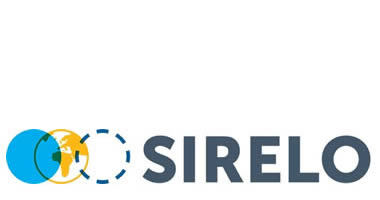The Green Slip: Paying your electricity

Since there is not enough of it, electricity is a big issue in Lebanon. The real reasons to why and how to solve it are being debated on a daily basis, but Yes, of course, in the end it all comes down to politics…
Depending on the area where you live there will is between 3 to 12 hours of daily electricity cuts, according to a schedule (for example, if your electricity is cut between 9AM -12 Noon on Monday, Tuesday it will be cut between 6AM and 9 AM) During summertime the power cuts are usually more frequent and longer, depending on the big increase of electricity usage (mainly from the many air conditioners and the big influx of tourists.)
The official provider of electricity in Lebanon is EDL (Electricité du Liban).
Lebanon have 220-230 Volts and 2 hole plugs. Converters are available in most stores.
The price of your electricity depends on how many amperes you wish to have, a normal household can usually do with 5 Amperes, but if you want to dry your hair while the washing machine is running without turning off the A/C, you should get 10 Amperes.
How to pay your electricity bill
Your electricity bill (a green handwritten small paper slip ) will be delivered to your home every month by an EDL employee, to whom you will pay in cash when he arrives. If you are not at home when he comes (because it is always a he) he will leave it at your door, with a note saying when he will be back a second time (usually within 3-4 days). Once you paid him, he will give you the official receipt (white, this time) where all the details of your bill and payment are computer written (i.e. not by hand this time). On this receipt the name of the building, the name of the apartment owner, the kWh hours as well as the price will be printed. This is the paper that you should keep in case you need to prove that you have paid your bill, and also to make sure that no one is screwing you with the kWh or the price.
If you fail to pay the bill when the EDL man comes the second time, you need to go to the EDL headquarter and pay directly to them within 10 days, or your electricity will be cut. You will not have your electricity back until you pay your bill and an extra fee.
If you have a Lebanese bank account you can pay your electricity bill via your local bank. To do this you have to go to the EDL headquarters and fill in an application with your details.
To make things easier, every neighborhood have created their own system to organize everyone’s payment of bills (electricity, internet, cable TV etc). The most common thing is that the mini market of each neighborhood will help with the handling of bills. For example, if you know that you're not going to be home during the day (i.e. you are not a housewife) you can give your electricity money and your slip to the mini market guy, and he will make sure that the EDL employee will get your money upon his second time around in the building. Just don't forget to collect your official receipt (the white slip) from the mini market, once they paid your bill for you. If you want to know the details of your own hood, just ask you neighbor. He or she will know. If you don't feel safe in giving your money to the mini market people, there will for sure be at least one housewife in your building who would love to help you out (in exchange for some gossip and a cup of coffee, of course.)
Private Generators
If the electricity cuts really bothers you there is the possibility to connect your home to the private generator of your neighborhood. If you are hooked to the generator, it will automatically start when the governmental electricity cuts. Just as with your local private internet provider, there is only one private generator allowed in each neighborhood. No competition is allowed (yes, it's sound like some kind of mafia style, non?).These private generators used to be unregulated by the government (and not completely legal) but recently the government set a regulated price for them (making it legal, in some kind of way). The result of this government regulation was a higher kWh price for the private generated electricity than the government one.
TIPS: How to survive the electricity cuts.
As a freshly arrived expat in Lebanon, the daily cuts of electricity can be a tad annoying. But there are some ways to make life easier without connecting to the pricey private generators. (These tips applies only to you who live in the inner-city of Beirut, who unlike the suburbs and other cities, normally have only three hours of cuts per day.)
- Make an effort to learn the schedule of the cuts, so you can plan ahead.
- Charge your cell phone, computer and other batteries during night, when there usually are no cuts.
- Use a gas stove, instead of an electrical one. This way, at least, you can cook food when there is no TV…
- Try to keep your refrigerator closed during the cuts. Especially in summer.
- If you're used to blow dry your hair in the morning before going to work; When you know the next morning will have the 6-9 Am cut, try getting used to do the shower and hair routine before going to bed. Or find a hairdresser located on your way to work. Usually they are open in the morning just for this reason. And a blow dry is cheap in Lebanon. Real cheap.
- Always have candles ready to be lit on crucial places (such as the bathroom)
- Panicking because there is no TV? Try reading a book. Or just listen to the birds chirping outside your window. It's actually quite relaxing.
Helena Forsell
She is a 30 something who left her native Sweden for Lebanon 6 years ago. Now she is reinventing life in Beirut.
- My Life Abroad -
A selection of expat stories

"A fun compulsive read!"
J. Matcham, Amazon
"I strongly advise people ready to live abroad to read this book!"
Patrice, Amazon


 AGS Worldwide Movers
AGS Worldwide Movers Fexco payment solutions
Fexco payment solutions 1stMove Car Shipping
1stMove Car Shipping